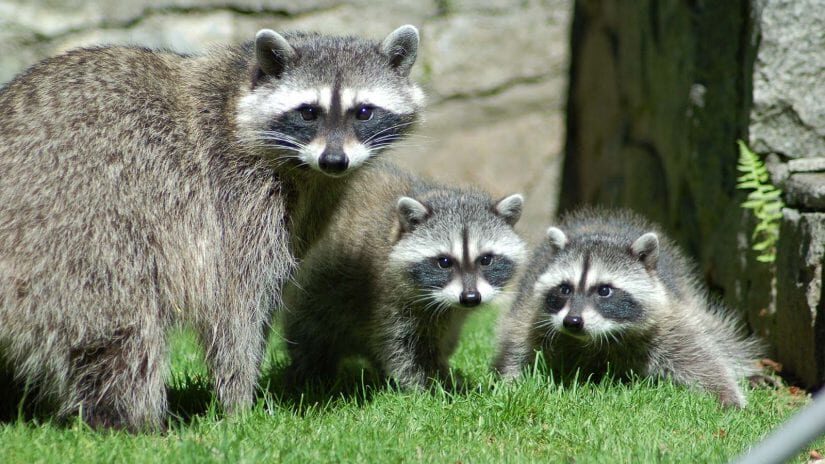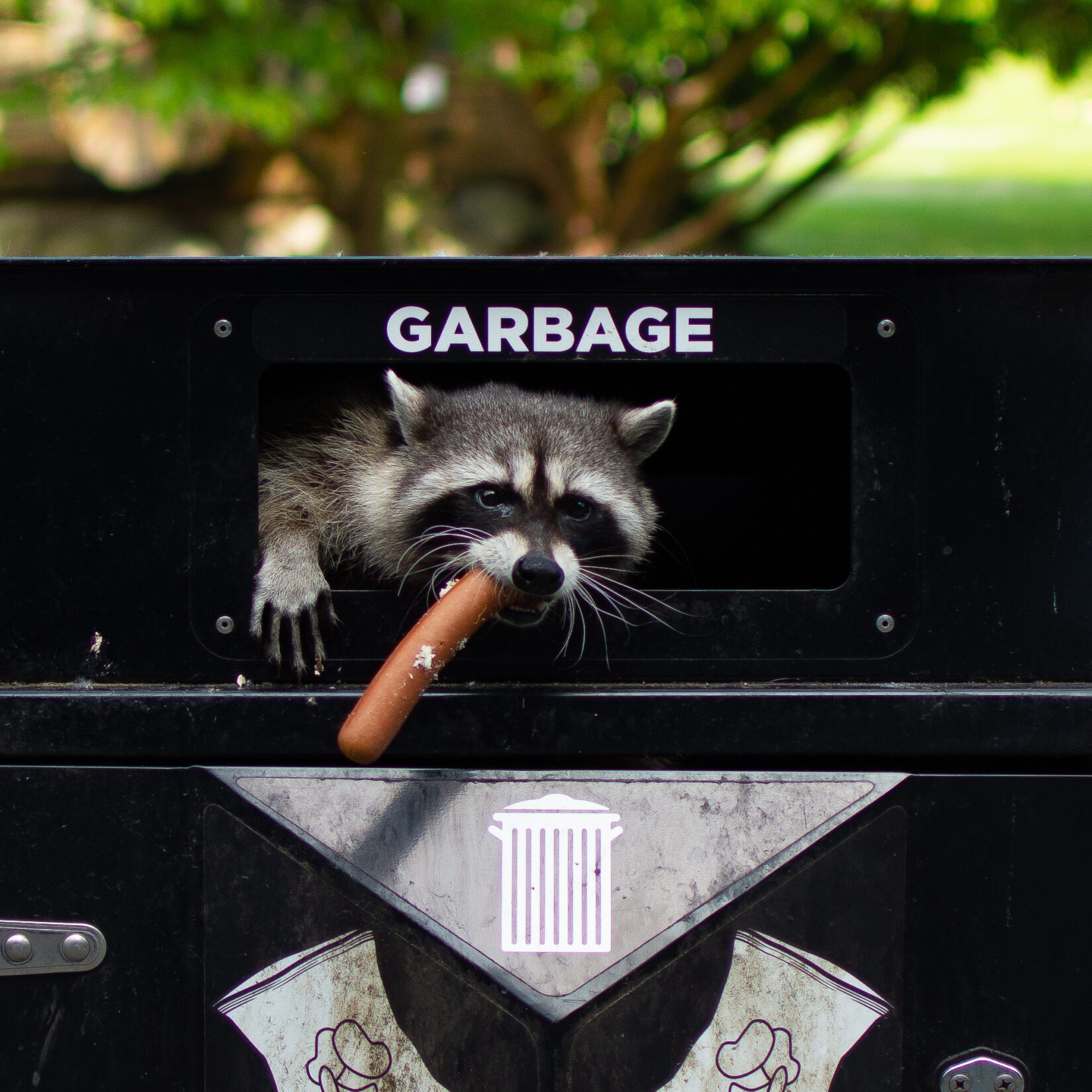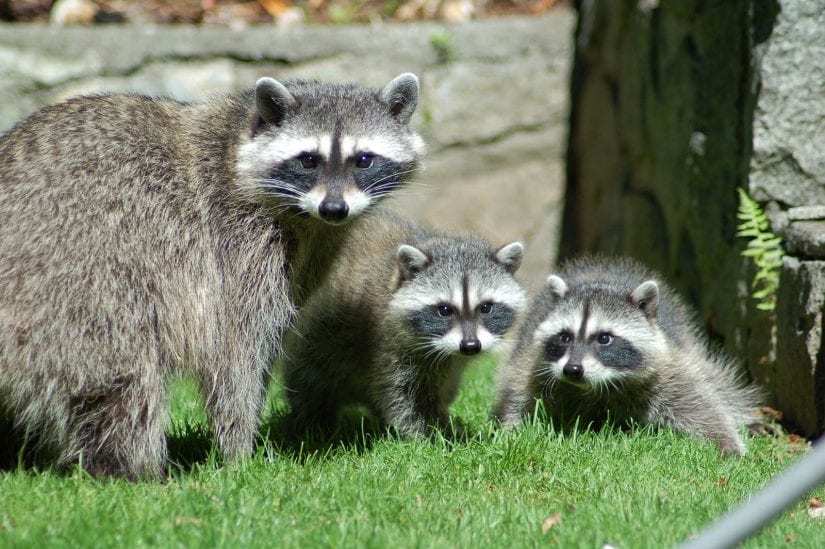
How to Deal with Raccoons at your Housing Co-op
Tips from the SPCA
Raccoons have a bad rap for making a mess in pursuit of the perfect meal. They are often labelled dumpster-divers, pond-raiders and garden-destroyers. This behaviour makes them valuable for cleaning up unwanted food from other animals, but gets them into trouble in and around our housing co-operatives.
Read SPCA’s best practice sheet on how to handle raccoon problems or remove them from your co-op (PDF).
Raccoons are not dangerous to people but their feces may contain roundworm eggs that can be. To minimize the risk of disease spread, safely clean raccoon excrement and remove attractants from your property. Access to human food (garbage, pet food or intentional feeding) decreases their fear of humans, and they may become aggressive toward food or injured pets. People often want to help, but they end up killing them with kindness. Feeding raccoons is harmful (PDF) and it is illegal to keep raccoons as pets in B.C.
If a raccoon approaches you, yell, stamp your feet, clap your hands and make noise to scare the raccoon away. This may feel silly, but it is the best way to keep raccoons safe from people. Thankfully, raccoons in B.C. do not carry rabies (like those in Ontario), so this is not a risk to you or your pets.

Prevent raccoon problems
- Don’t feed raccoons: This causes them to lose their fear of humans, and also increases their chance of being hit by a car or trapped and killed.
- Secure garbage bins and compost
- Pick up fruit fallen on the ground
- Don’t let bird feeders overflow with seeds
- Don’t leave pet food outside, feed pets inside
- Supervise pets outdoors: Keep pets indoors from dusk to dawn
- Keep your cat indoors: The only way to guarantee your cat’s safety is making them an indoor pet or providing an enclosed area.
- Maintain your co-op: Maintain sheds, garages and access to crawl spaces and attics to prevent raccoons from moving in.
Raccoons often roll up new garden sod while looking for bugs. Use non-toxic diatomaceous earth on your lawn to prevent bugs and raccoons.

Encourage raccoons to move along
Once a raccoon has moved in, trapping is not the solution.
Read SPCA’s best practice sheet on how to humanely remove raccoons from your co-op (PDF).
You can encourage them to move along by using mild harassment techniques. To avoid disturbing families with babies, address raccoon problems before March or after August. Harassment techniques should not harm adult or baby raccoons. These do-it-yourself exclusion techniques are inexpensive, but may take some patience:
- Place a flashlight or work light in the den site
- Play a radio (with a talk radio station) near the den site
- Make a raccoon repellent by placing rags soaked with apple cider vinegar in a plastic container. Tape the lid shut and punch holes so the smell permeates.
- Place one or more containers in the den or at entry points. Refill the vinegar every couple of days as needed.
If you have to remove a raccoon, call an AnimalKind company that uses exclusion techniques instead of trapping/relocating or killing.